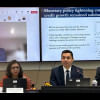The headless industry dilemma: Navigating the fallout of crony capitalism

The golden rule of crony capitalism, in which profits are private but losses are social, has led to blatant injustice, as is generally recognised. The extra-market connections of crony capitalists facilitated transactional benefits while leading to entrenched market power, distorted competition, and depressed productivity growth, all contributing to growing inequalities. Yet, attempts to change the crony business model are facing their own dilemmas.
Vacuum at the top
Many companies, foster children of erstwhile power structures, are facing existential threats due to a sudden departure at the top. The fallen oligarchs were astute enough to perpetuate a system from which they generated their fortunes. They secured a larger share of a smaller pie or a larger share of a larger pie, depending on the perceived chances of maintaining control over resources.
Their companies have significant stakes in financial and labour markets, spanning sectors such as garments, textiles, steel, shipbuilding, cement, leather, paper, pulp, steel, sports, liquid petroleum gas, fast-moving consumer goods, finance, real estate, transport, education, healthcare, media, and digital business.
Their combined workforce, encompassing both white-collar and blue-collar employees, likely ranges from 500,000 to perhaps a million, representing about 0.7 percent to 1.4 percent of total employment. Their contribution to GDP is likely several times greater, as was their share in political power.
The policies they implemented became endemic over time, making reform difficult. The incumbents fortified their advantage. Banks, often owned by the same people who own the borrowing companies, never bothered to run veracity checks on their balance sheets before lending them loans in thousands of crores of taka or millions of US dollars.
In the aftermath of August 5, 2024, many of these companies have become headless. Their ultimate beneficiary owners have fled, gone into hiding, are imprisoned, keeping low in Bangladesh, or are wheeling and dealing from abroad. These individuals face criminal charges and various sanctions impacting their finances and the operation of the companies they owned or patronised.
The abrupt cessation of political patronage, hitherto extended through public budgets, banking systems, and business regulations, has put at risk production and employment in the headless enterprises.

A case for interim support
A case can be made for sustaining these entities to maintain stability and prevent needless detriment. These are far from fledgling ventures; they are well-entrenched institutions. Numerous ones contribute significantly to the economic fabric. They possess deployable physical and human resources that add substantial value. Presently, they resemble neglected orphans, bereft of the nurturing direction and attention they once received.
They lack the connections that gave them resilience and expansion. Their management leveraged the influence of their owners and political godfathers to skew the competitive landscape in their favor. In fact, there is now a real separation of ownership from management, a separation the enterprises cannot handle on their own because the fleeing owners emptied the company accounts.
If these enterprises remain fundamentally sound, is it not possible to rescue them through policy-driven recovery efforts aimed at rectifying the illicit transfer of capital? Without intervention, the potential loss in production and employment could diminish economic value significantly unless alternative structures are introduced to replace the departing owners. Given the extensive diversification of these conglomerates, their sudden collapse would send shockwaves through the broader economy. Strategic policy support could help mitigate such systemic risks.
Policymakers are currently wrestling with the challenge of deciding on the best course of action for these leaderless enterprises, without regard to their paths of survival. The preservation of actual jobs is paramount, and this concern differs fundamentally from endeavors to hold the ultimate beneficiary owners responsible.
Should the government ease sanctions and show leniency towards behavioral issues to sustain productive enterprises until lasting solutions emerge? The immediate social costs, such as unemployment and shortages, must be weighed against the long-term benefits of demonstrating strict accountability.
Culture of impunity
While maintaining an open mind, it is crucial not to disregard our own experiences and those of others. Entities that are vulnerable today once wielded significant influence, and those who were previously marginalised are now striving to regain their footing with the changing political landscape. The currently powerful often extend a hand to the newly vulnerable, fostering a reciprocal dynamic of mutual support.
We've observed how this can result in merely changing the players without altering the underlying game. The efforts of the caretaker government in 2007-08 serve as a historical example, where displaced powers re-emerged significantly, and the rest is history.
Those at the helm of these entities felt impervious to consequences. Aware of their likely immunity from accountability, immediate gains were prioritised over long-term stewardship. They can even afford to smirk and declare, "We will be back," as they are escorted to jail.
Bailouts, irrespective of size, connections, and systemic significance, effectively insulated the beneficiaries from the negative repercussions of their actions, leading to a reckless disregard for accountability. Over time, the erosion of responsibility rendered the system increasingly fragile, concentrating power in the hands of a few colossal conglomerates. Irresponsible behavior increasingly displaced responsible conduct. Adhering to the rule of law was less rewarding compared to aligning with the rule of the powerful.
The culture of impunity fostered a belief that rules can be selectively enforced for the powerful and well-resourced. It stymied essential reforms in the legal, social, and business frameworks that missed accountable governance. We have, as did many others, experienced how transitory policy support to crony-dependent enterprises can run into slippery slopes. Reversion to more of the same game by episodic changes in players has fueled public frustration, transforming them into a force poised to be gaslighted.
No easy answers
A similar quandary beset advanced economies during the 2008 global financial crisis. Governments stepped in to rescue major financial institutions bankrupted not merely by market risks but also by corrupt practices, ranging from straightforward cheating to highly complex financial derivatives. They combined bailouts with professional incarcerations, imprisonment for financial crimes, and legislative reforms. Yet many executives who made extravagant money managed to escape with their personal wealth intact.
The dilemmas faced by the IG are not fundamentally different, even though the trigger was shifts in political power rather than a housing market crash. However, bailing out companies owned by individuals accused of flouting the system differs significantly in strategic and operational details from bailing out enterprises disrupted or bankrupted by market shocks. The headless companies require salvation not only from their immediate financial predicaments but also from the return of the business model that cannot breathe without political oxygen.
One pragmatic approach involves implementing business resolution procedures to find suitable substitutes for the lost guiding oversight. These temporarily orphaned legal entities might opt for dissolution as one solution. Alternatively, securing new owners could be viable if their ownership is safeguarded against political vicissitudes. The government could step in as a temporary guardian, provided it can supply the requisite human and financial resources. Special purpose vehicles could also be established. Though numerous options exist, none promises immediately lasting solutions.
Kicking the can
The lesson from history for policymakers is to deter impunity better, balancing righteousness with practicality. Changing the equation necessitates imposing penalties on those who violate legal and social standards, with severity sufficient to dissuade future infractions. Bailouts should be accompanied by rigorous conditions and regulatory supervision.
It is unlikely that a universal, one-size-fits-all solution can address this complex issue comprehensively. Risks to stability are inherent on both sides. The IG will not have the luxury of time to create new support systems or identify alternative proprietors. Its most viable option is to offer temporary aid targeted to sustain employment and production, while the long-term resolution will depend on outcomes post-election.
The writer is former lead economist of the World Bank's Dhaka office

 For all latest news, follow The Daily Star's Google News channel.
For all latest news, follow The Daily Star's Google News channel. 








Comments